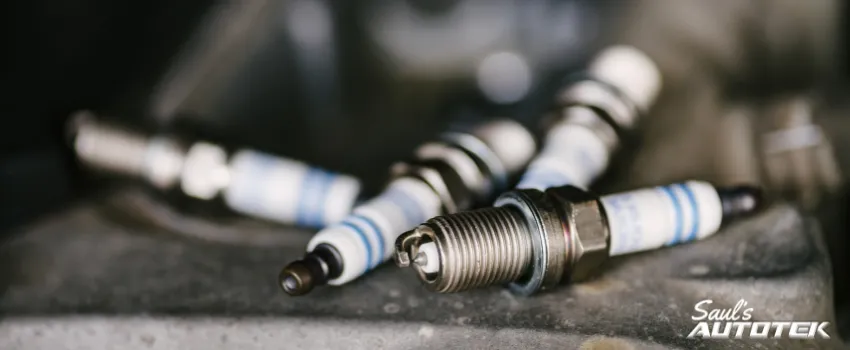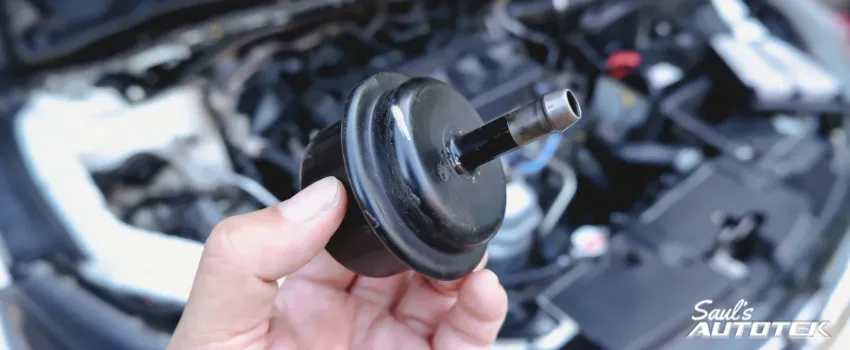Hi there. I’m Saul Reisman here at Saul’s Autotek in Denver Colorado, and today we’re going to talk a little bit about what it means to be fast in Colorado.
Now, oftentimes, you might see in drag racing circuits or sport tech aspects, they’ll show you the altitude that a race track is located at, because it has a major effect on the way a car performs. We see lots of people that are recently moving to the Denver Metro area. We welcome you. We want to help support and keep your vehicles on the road. We hear a very common complaint.
“My car doesn’t make as much power. It’s not as fast as it used to be. Something’s wrong with it.” The answer more than likely is there’s nothing wrong with your vehicle at all.
The reason that vehicles feel so underpowered here is because of the lack of oxygen. Simply being in the Denver Metro area at a mile high, you lose approximately 3% oxygen density per 1000 feet. So, being in Denver, you’re already at 85% oxygen level of what you are at sea level. As a result, that’s like driving your vehicle with your choke on. So if you’ve ever started your lawn mower, your snowblower, your ATV, and for those first couple minutes while it’s warming up you leave the choke on so it doesn’t get as much air, helps that engine warm up, but it’s really underpowered during those first few minutes. And then you open the choke, it gets the rest of its air, and it can go full throttle. You can go mow the lawn, take care of whatever needs you need to.
Well, unfortunately, being in Denver you can never take that choke off.
You’re stuck at that 85% oxygen level constantly. One benefit of it is, vehicle manufacturers from around the world actually come to this area, so they can test their products. On I-70 up in the mountains of Colorado or on Highway 94 or 24, you’ll often see motor vehicle companies testing their vehicles, masked in black and white wrapped leather so that they can see how they perform at ultra-high-elevation testing.
Driving to the Eisenhower Tunnel (Read our Auto Repair Blog About this Here) at 11000-plus feet, the vehicle is subject to only having 67% of the oxygen it does at sea level, reducing it by one third. And, is going up to 6% grade, putting an additional load on the vehicle. By the time you encounter the drag of the other componentry associated with it from the curves of the road itself that are requiring the driver to put more throttle input to keep the vehicle accelerating around those curves and changing that vector tangent, the vehicle is actually experiencing almost a 2:1 reduction. It’s only putting about 50% of the power to the ground of what it would at sea level in a straight line. As a result, owners a lot of the time want to find a way they can supplement that.
Ways that we can often help with are artificial aspiration, which would be to supercharge or turbocharge a vehicle and give it more breathing room so that it can make more power.
The more air we can shove into it, the more fuel we can put into it to match that ratio, and the more power it’ll generate and put down at the wheels. The result of owners coming in and asking about their vehicle that might be underpowered or might feel sluggish compared to before, oftentimes will result in a minor tune-up and a check-over of all the systems, but a possible recommendation for a few upgrades or changes in the future, so that you can restore that power that you’re longing for that used to have.
If you’ve got concerns about yours, you’re looking to get a little bit more power, a little bit more scoot compared to what it used to be when you were back at those lower elevations, come and see us here at Saul’s Autotek. We’d be happy to find great ways to give you elevation compensation. Seven days a week, at (303) 919-7769.
Schedule Your FREE diagnostic Subaru Outback Auto Repair Upkeep and Repair Appointment
Check out Our Reviews On Yelp! And Leave A Great One For Us!
Join Our Conversation on Facebook
Explore Our Exceptional Denver Auto Repair Services
- Brake Repair Service
- Suspension Repair
- Steering Repair
- Engine Repair
- Automotive Air Conditioning and Heating Repair





